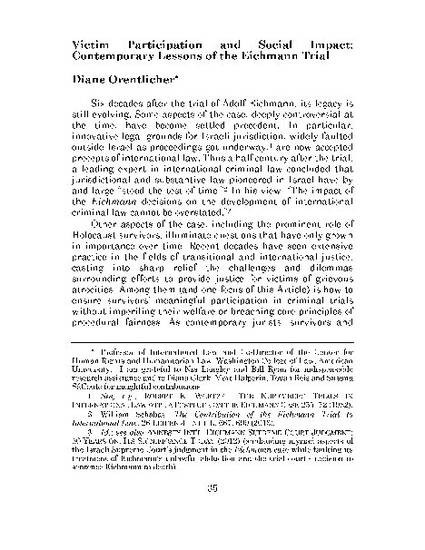
Minnesota Journal of International Law
- International Law and
- Law
Six decades after the trial of Adolf Eichmann, its legacy is still evolving. Some aspects of the case, deeply controversial at the time, have become settled precedent. In particular, innovative legal grounds for Israeli jurisdiction, widely faulted outside Israel as proceedings got underway, are now accepted precepts of international law. Thus a half century after the trial, a leading expert in international criminal law concluded that jurisdictional and substantive law pioneered in Israel have by and large "stood the test of time." In his view, "The impact of the Eichmann decisions on the development of international criminal law cannot be overstated."
Other aspects of the case, including the prominent role of Holocaust survivors, illuminate questions that have only grown in importance over time. Recent decades have seen extensive practice in the fields of transitional and international justice, casting into sharp relief the challenges and dilemmas surrounding efforts to provide justice for victims of grievous atrocities. Among them (and one focus of this Article) is how to ensure survivors' meaningful participation in criminal trials without imperiling their welfare or breaching core principles of procedural fairness. As contemporary jurists, survivors and advocates seek to address this and other challenges, the Eichmann precedent is well worth considered attention.
Available at: http://works.bepress.com/diane_orentlicher/89/
